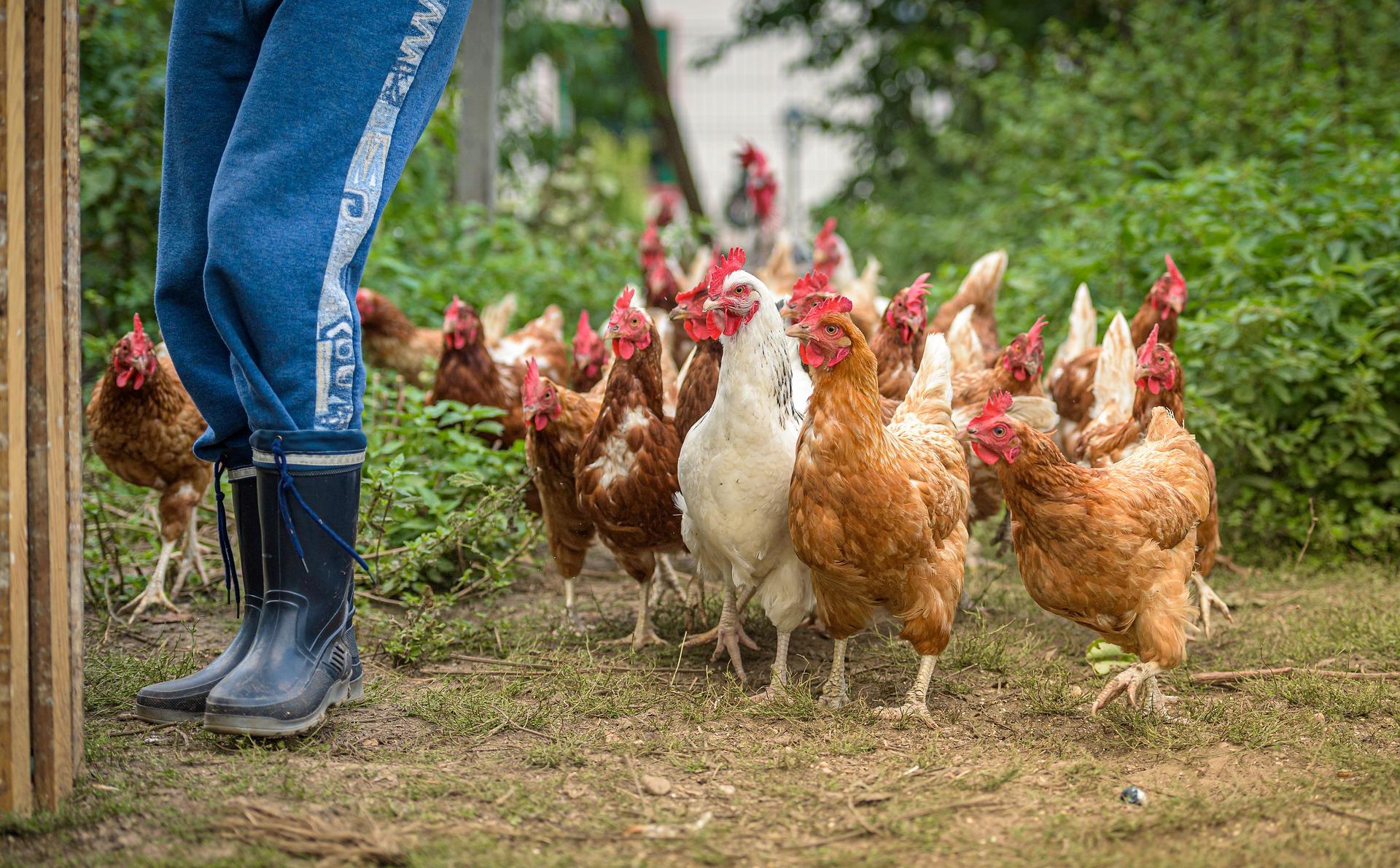Researchers from The Pirbright Institute working to improve vaccines for infectious bronchitis virus (IBV) have identified targets in the virus’s genetic code that could make vaccines safer.
Better vaccines would have a huge impact on improving health and welfare of poultry and protect food security.
Infectious bronchitis virus (IBV) is a type of coronavirus that causes a highly contagious disease in poultry, it does not cause disease in humans. The virus causes respiratory symptoms and affects the reproductive tracts of birds which reduces meat and egg production.
Current vaccines for IBV are created by infecting embryonated hen’s eggs. This process involves infecting eggs with live virus, harvesting the virus and then infecting more eggs. Each time the virus is recovered from these eggs, it is weaker and less able to cause disease (this is known as a live attenuated virus). This method uses a virus strain that is able to cause disease and gradually weakens it until it is no longer able to cause disease. However, this method leaves a risk that the resulting weakened strain could potentially revert to being able to cause disease. Using eggs in this way could also increase the virus’ ability to cause death in chicks before they have hatched.
By understanding a virus’s genetic code scientists can get a better understanding of how it causes disease which in turn can also help in the creation of more controlled and stable vaccines. In this research, published in the Journal of Virology, Pirbright scientists identified parts of the genetic code that could be targeted to weaken the IBV virus such as genetic sequences that control virus multiplication, the ability to cause disease and start an immune response.
Using a technique called ‘reverse genetics’ scientists examined how the genetic code influences virus behaviour during infection which enabled them to then alter the genome of a disease-causing strain of IBV known as M41. By altering these important genetic sequences scientists weakened the virus and prevented it causing disease.
Proteins known as ‘non-structural’ proteins (proteins involved in virus multiplication or control of the chicken’s cells) were identified as potential targets to weaken the M41 IBV strain. This study provides evidence that mutations in the genetic code for non-structural proteins offer a promising way to make vaccines against IBV. These vaccines may also be suitable for vaccinating chicks prior to hatching to protect against the disease.
Dr Erica Bickerton, head of the Coronaviruses group at Pirbright said: “The development of this reverse genetics system provides a powerful tool for future in-depth research into IBV’s ability to cause disease and effect the host immune system, as well as vaccine development. The weakened IBV strain generated from this study shows promise as a vaccine strain because the genetic mechanisms of attenuation are proven to be stable and the ability to cause disease in chickens and eggs reduced. The research demonstrates the safety of vaccinating eggs is advantageous to the poultry industry because vaccinating eggs is easier than flocks of chickens. It provides the ability to control the dose and gives protection at the point of hatching."
This work was supported by UK Research and Innovation Biotechnology and Biological Sciences Research Council Grants.
